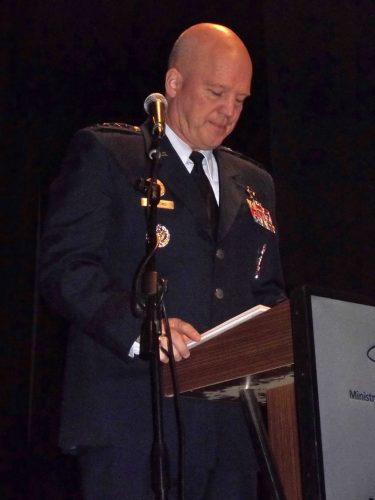This is what the Commander of the Space Command of the US Air Force General (four stars) John Raymond said as part of the twelfth International Space Conference named after Ilan Ramon that took place last week at the Air Force Base in Herzliya, in cooperation between the Ministry of Science and the Fisher Institute

We see a challenge in operating from space. In September, the US Air Force celebrated its 70th birthday and the Space Command celebrated its 35th anniversary. It was an amazing opportunity to celebrate the heroic legacy of our people. This is what the Commander of the Space Command of the US Air Force General (four stars) John Raymond said as part of the twelfth International Space Conference named after Ilan Ramon that took place last week at the Air Force Base in Herzliya, in cooperation between the Ministry of Science and the Fisher Institute.
"In the three decades that have passed since then, the American government understood our space capabilities and the vulnerability that we at the US Department of Defense face in operating space missions. Just a few years after the command was founded, the Berlin Wall fell and the Cold War ended, but then we went to war against Saddam Hussein to restore Kuwait's sovereignty. The command was then a total of nine years old. We went to war straight from the isolation of the Cold War. Even the GPS system was not fully operational because America never planned basic capabilities in space.”
"Desert Storm is considered in the US to be the first space war, but in fact we were really not prepared. Even if you look at one aspect of the capability, you see that the amount of precision weapons directed from space was small. I can tell you that in the 26 years that have passed, the spatial dimension entered everything we did."
"What my command has been doing for the last six years is to bring space capabilities to all military activities, and in my last position before I was appointed commander of the command, I was the director of the Air Force's operations in space. We are thinking about communication between satellites but many people in the field did not know much about this cooperation. However, as the director of operations of the Air Force, I saw that the Air Force operates in space in three dimensions - space, ground and cyber, and we had great achievements in all of them, and today space is integrated into everything."
"Looking ahead to the future, we envisage a transparent integration between space and other military activities, but we will never take the lead in space for granted because our competitors are rapidly developing capabilities that threaten our access to space."
"So far we have enjoyed freedom of action in space. Today this is difficult because of the abundance of satellites that have the ability to disrupt the communication to our satellites. This is a war that no one will win.. One of our biggest projects is called Space Enterprise. Last year we appointed a team that will change the organizational strategy and the separate work of each military body as the current situation is very inefficient. The potential in space will only increase in the future, we must change the way we operate. Horizontal integration is an essential element. It is very important for us to abolish the separation between the various forces."
"Space is not only a matter of instruments in orbit, it is also the ground systems. You will surely be surprised to hear that we work with 15 different systems. We not only need to operate satellites but set standards for revealing the information from existing systems. That's why it's important to break the barriers between systems and provide a control and alert system and not be dependent on one provider or another."
"Together we are strong. One example of this partnership is the agreement we have with other government entities and with private companies to share unclassified information to prevent satellites from colliding in space. Almost every day, the operators of at least one satellite are forced to change the orbit of satellites and three times a year, even the orbit of the International Space Station so that they do not collide with space debris."
"Never before have so many countries cooperated in space. In 2016, we refocused on international collaborations. The main topic was international policy and strategy - a field in which the US and its partners are required to work together. These partnerships help us meet the challenges we face today."
"Our goal is to prevent war in space and maintain peace. But we must definitely be ready to defend ourselves if something happens. We are confident that our soldiers, sailors, marines and air force depend on us as a body to enable them to maintain lasting peace. The audience here understands that this government wants to play a role in space."

One response
Hi,
I'm in favor of them doing wars in space with priority for the Mars sector and leave us in peace!